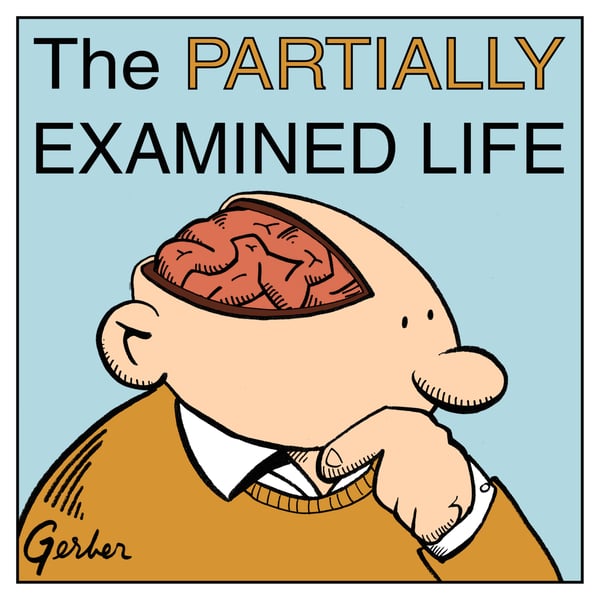Ep. 363: Franz Brentano's Moral Epistemology (Part Two)
The Partially Examined Life Philosophy Podcast
Mark Linsenmayer
4.6 • 2.3K Ratings
🗓️ 24 March 2025
⏱️ 50 minutes
🧾️ Download transcript
Summary
Continuing on "The Origin of the Knowledge of Right and Wrong" (1889), getting into how we measure the comparative value of things. While Brentano does observe actual practices in these areas, his phenomenology detects moral facts that can be used to cast judgments of people's actual practices, saving him from relativism.
Get more at partiallyexaminedlife.com. Visit partiallyexaminedlife.com/support to get ad-free episodes and tons of bonus discussion.
Sponsor: Learn about St. John's College at sjc.edu/pel.
Transcript
Click on a timestamp to play from that location
| 0:00.0 | We're listening to Partially Examine Life, Episode 363, Part 2. |
| 0:12.7 | We've been discussing Franz Brentano's lecture, The Origin of the Knowledge of Right and Wrong from 1889. |
| 0:20.4 | This has 40-some sections in it, and we were up to the magical section 15. |
| 0:27.2 | Yeah, so, you know, after in 14 telling us we need to revert to the insights of descriptive psychology |
| 0:32.8 | in order to understand moral sanction, and in particular understand how we know how we could know |
| 0:39.2 | right from wrong or the good from the bad so getting into that descriptive psychology means |
| 0:44.9 | talking about the will and it's in 15 that right because moral and immoral actions pertain to the |
| 0:51.6 | will and then the question is about ends. So some of our |
| 0:56.2 | ends, right, are means to other ends. And we know when we make choices that something is right, |
| 1:03.8 | if it fits the end in particular, right? You know, if my end is satisfying my hunger, then going to the fridge, |
| 1:11.1 | right might be the right means to that. I can answer that question. But ultimately, |
| 1:15.2 | that chain of connections between means and ends will come to an end. I will have an |
| 1:21.4 | ultimate goal, right? Which for Aristotle was eudaimonia or flourishing or happiness. |
| 1:33.7 | There's at some point I won't be able to say why I'm doing exactly what I'm doing because it's no longer a means to anything. |
| 1:36.2 | It's desired for its own sake. |
| 1:38.7 | Yeah. |
| 1:39.1 | So section 15, he switches the conversation. |
| 1:42.1 | So we're not talking about right and wrong action anymore, |
| 1:46.7 | or at least what we would typically think of as the subject of ethical discourse, |
| 1:52.8 | what have you is, what's the right thing to do, what's the good? |
| 1:56.7 | So it becomes the discourse changes. |
| 1:58.9 | First, in the sense that he associates the notion of acting ethically with willing. |
... |
Please login to see the full transcript.
Disclaimer: The podcast and artwork embedded on this page are from Mark Linsenmayer, and are the property of its owner and not affiliated with or endorsed by Tapesearch.
Generated transcripts are the property of Mark Linsenmayer and are distributed freely under the Fair Use doctrine. Transcripts generated by Tapesearch are not guaranteed to be accurate.
Copyright © Tapesearch 2025.

